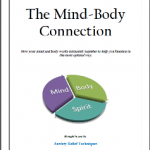Dysthymia or Chronic Depression Symptoms and Treatments
Chronic depression is a mental health disorder that lasts for a long period of time. For example, it could be as long as two years or more. It is also known as Dysthymia. It can refer to ongoing depression that never subsides or to depression that comes and goes.
This type of depression is not necessarily severe. It’s just continues over time…hence why it is known as chronic.
Chronic depression is often treated with medication after other therapies have failed. A therapist will try behavioral, cognitive and group therapy before any depression medication is prescribed. Using prescription medications is usually the last treatment choice.
Depression Treatments
It is when other forms of treatment are ineffective that your health care professional may administer an anti-depressant. It’s important to understand though that the other depression treatments will continue in conjunction with taking medication. Using prescription drugs is not normally a permanent solution except in the most severe of cases.
Chronic Depression (Dysthymia) Symptoms
You may notice a few of the following symptoms, which are relative to many other types of this mental disorder:
- Inability to concentrate
- Constant guilty feelings about your life
- Suicidal thoughts
- Low self esteem
This chronic depression is long lasting and ongoing. You might experience these symptoms every day for years. There are essentially no extreme ups and downs like you find in other forms of depression. It’s more a lack of joy in your life and feelings of inadequacy that hold you back. As you can see from the list of symptoms, dysthymia is not as debilitating as other more severe forms of depression. It seems to stay more thought based.
Chronic depression (Dysthymia) can occur at any time of life. This chronic depression has no particular age association which means children, teens or adults can develop this disorder. Because the person doesn’t exhibit overt physical or emotional problems, it can be difficult to diagnose – especially in children or teens.
Dysthymia needs to be treated as soon as possible, as it can lead to more severe depression as times goes by. If you are chronically depressed, you need to seek treatment because the feelings will continue without intervention.
Identifying disorders such as dysthymia can be difficult. If you are going through life never feeling joy or pleasure, then you perhaps should take a depression test. Ask yourself how long you have been experiencing your depression symptoms. Identifying chronic depression is the first step in the treatment for the disorder.
Affiliate Disclosure
My website contains affiliate links, which means if you purchase any products mentioned in my articles, I may receive a commission. If you do, thank you!






Speak Your Mind